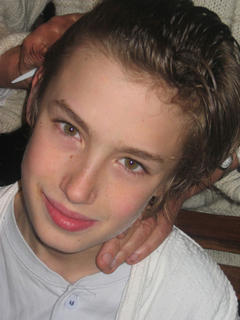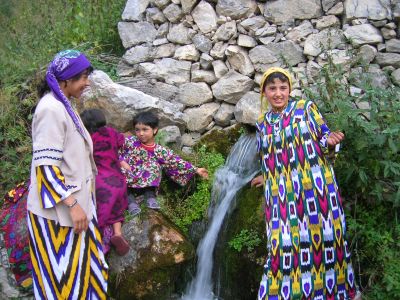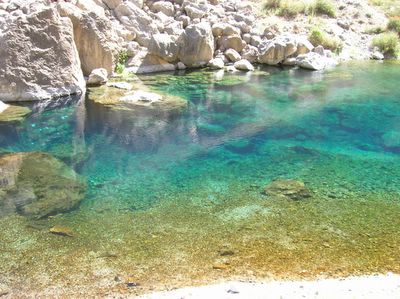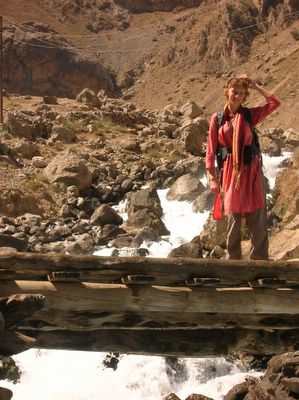Well, I had my laugh about security warnings.
Yesterday a suicide bomber attached one of the bases of the Afghan National Army, just as a graduation ceremony was being held for the new recruits, and at least twelve people were killed.
This morning, Ed received a call from his young archaeologist friend to say that the parliamentary candidate who was employing him has just been assassinated.
Neither of these events make me feel that my personal safety is any more in jeopardy than it was, but they are grim reminders of the challenges faced by the courageous people fighting for a peaceful, honest future for their country.
RZ, the young archaeologist, is one of our best friends in Afghanistan and an extraordinary person.
My first contact with him was through the presents that he gave Ed to celebrate our marriage, before I had met him. He gave us a rather charming plaster cast of the Madonna and Child (unexpected!), a very colourful poster of a sinuously loving couple in Shahnameh style surrounded by riotous flora and fauna, and a beautiful sample of his calligraphy, one of his many talents.
RZ is a tireless and effervescent young man who was born and brought up as a refugee in Tehran, and travelled to Afghanistan for the first time last year. He has settled with his family, like most of the new returnees, in an exposed patch of land on the outskirts of Mazar-i-Sharif.
He has no formal training in archaeology – a subject which it would have been a great luxury to pursue in the circumstances, indeed his undergraduate degree in engineering was interrupted when he was obliged to leave Iran. But he is extraordinarily knowledgeable and well-read, having combed the ancient remains in and around Mazar and read everything he could find about Afghanistan’s past. He has written four books (unpublished, as yet – but I am sure that will change when his luck does) on the history of Balkh province, the Bactrian empire and so forth.
All his books are written out by hand, and illustrated with his careful drawings of Bactrian coins and transcrubed insciptions.
He has been employed by the Ministry of Culture, despite his youth and lack of qualifications, and is responsible, I think, for the Museum in Mazar, or possibly for Historic Monuments in general. The Ministry of Culture appears to be a somewhat fluid and mysterious organisation. RZ largely supports himself though by running calligraphy classes for girls and boys in Mazar.
Doubtless because of his great energy and flair, RZ was employed by one of the candidates in the parliamentary elections to organise his campaign and write his speeches.
He worked extremely hard in the run-up to the elections – sometimes all night, it seemed, but he was very reserved in speaking to us about this, and he did not tell us the candidate’s name. He told us only that the candidate was a very rich man (with several large cars, as I recall), and a good man, and that he hoped he would receive some help if the campaign was successful. Knowing RZ, I can imagine that the help he hoped for would be something in the nature of better funding for architectural preservation, or a more concerted effort to combat the ongoing plunder and defacing of the monuments, which distresses him so.
Now it seems that this man is dead, and RZ is badly rattled. Without knowing the details, I can only assume that this candidate was perceived to be a threat to the interests of the powerful drug trafficker / warlords who control Balkh province (of which Mazar is the capital), a focal area for opium production and conveniently located on the border with Uzbekistan (which has a rocketing heroin problem).
One of my main goals before I leave Afghanistan is to help RZ to get a fully funded place on an archaeology degree, preferably at UCL or Chicago University. All offers of help and advice gratefully received as always.













